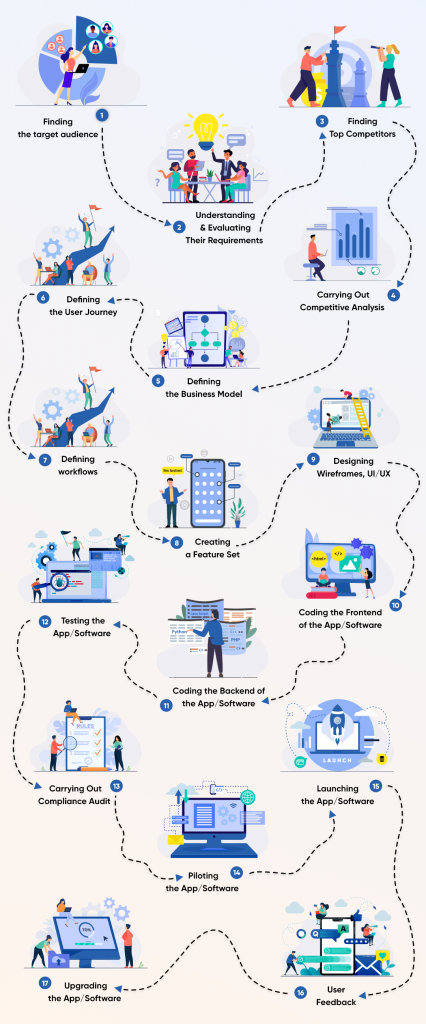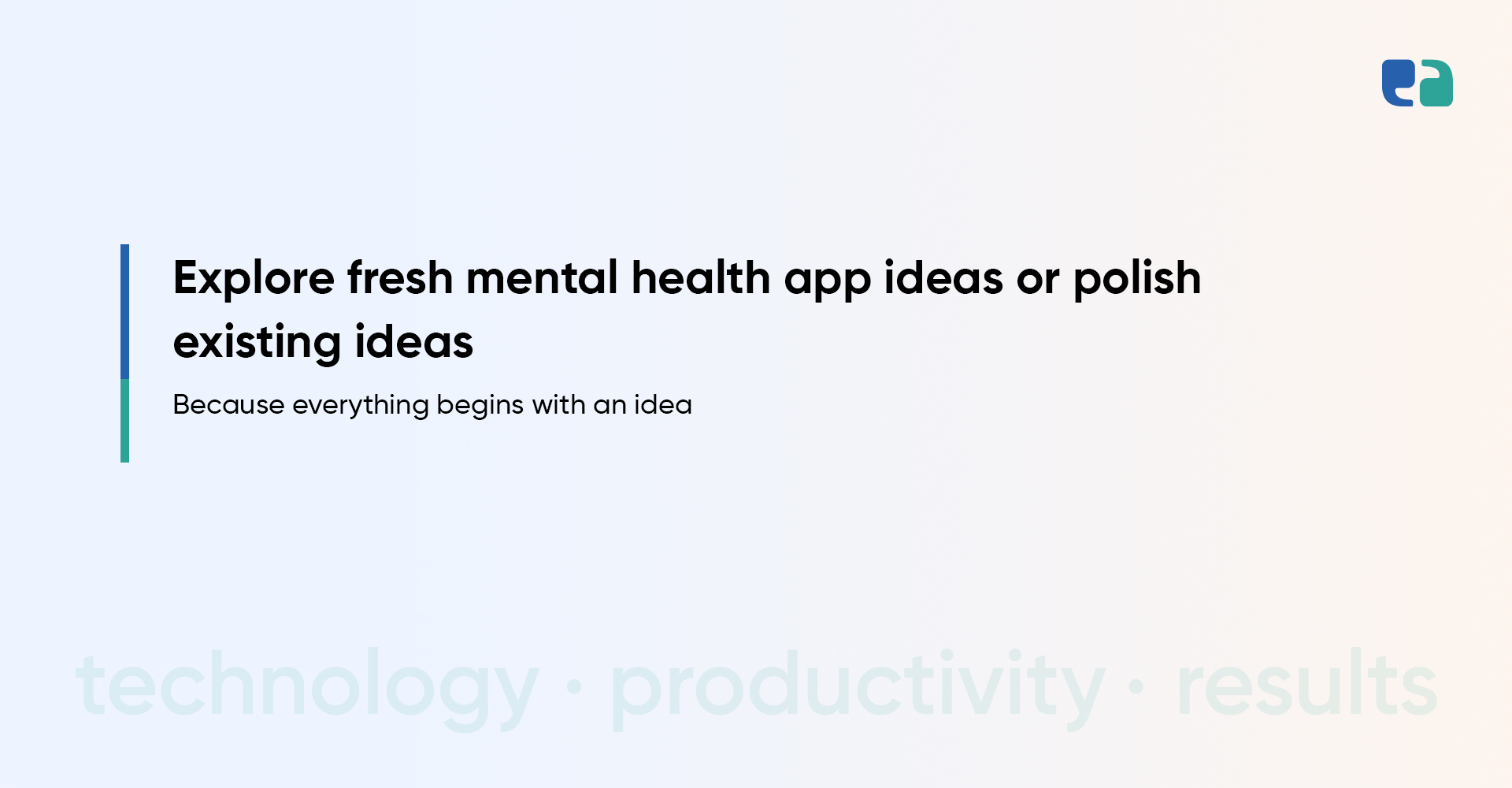Quick Summary: Things are different now. People now more often get caught discussing mental health with their colleagues, friends, families and communities. And on the brighter side, the awareness around mental health is ever-increasing. But the question is, are you ready to find opportunities from the pandemic-fueled mental health awareness and convert it into a real business? If you have a serious plan of starting a mental health startup, let us share some of the fresh mental health business ideas for the post-pandemic world.
What are the clinical roles of mental health apps?
Technology has evolved so greatly that it is now capable of assisting patients in both primary care and secondary care. And mobile apps are the most ‘practical’ piece of technology that is most accessible too!
The following is how a mental health app delivers clinical value to the patients or helps patients to deal with their mental health crisis.

There are many other ways a mental health app can prove itself as the most easily accessible and clinically-proven solution to mental health challenges and that’s why it is a very fruitful business opportunity to start a mobile app-based mental health startup.
Different types of mental health apps you can consider building for your mental health startup
Mental health challenges come in a variety of flavours, and so do the mental health mobile apps. However, all types of mental health apps serve a similar purpose – help patients to deal with the tough time they are going through and achieve the highest level of mental wellness.
The following are the top types of mental health apps that are most likely to be the first choice of users in the post-pandemic market.

Source: https://dribbble.com/shots/15582319-Meditation-App
Top mental health business ideas to dominate the post-pandemic US healthcare market
There are multiple unique and less-explored mental health startup possibilities out there in the North American market. The following are our hand-picked ones.
You have an idea. Now, what’s next? How to build a mental health app?
Converting an idea into a living app is not a task. It is a process and that process deals with not only coding but several other tasks.
The following is the complete roadmap to building a mental health app.

FAQs on mental health app development
How can we help you kill the competition with best-in-class mobile apps?
We’re an Ontario-based healthcare-focused IT company. We are driven by healthcare IT passion and healthcare IT expertise.
What makes us different is that we understand healthcare. We have an operational center in Canada and a state-of-the-art development center in India.
Our team includes healthcare-specific developers, UI/UX designers, business analysts, compliance specialists and QA engineers who work in the perfect rhythm to build epic healthcare solutions for startups, enterprises and individual providers.
Since we have been dealing with only the healthcare industry for 7+ years, we have earned a profitable mastership in the healthcare business, technology and compliance.
So, this way, we are capable of helping you in all technical, business and compliance challenges which are stopping your way to a successful mental health startup!




